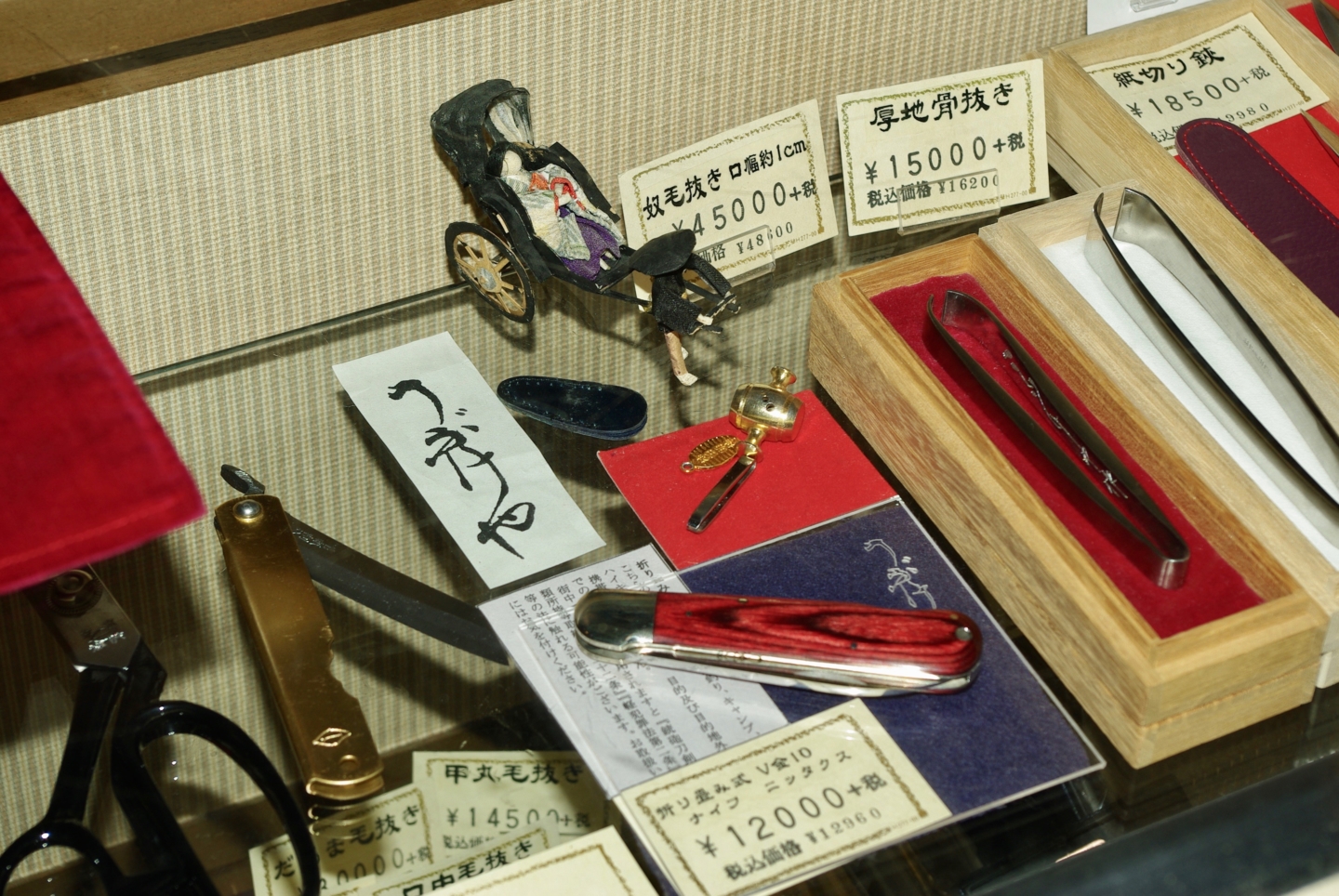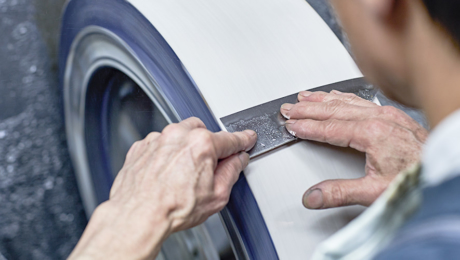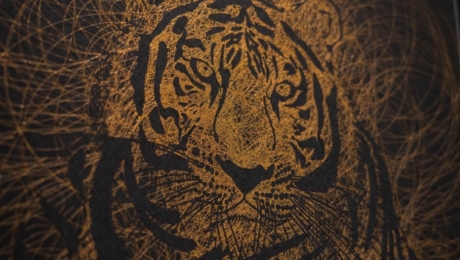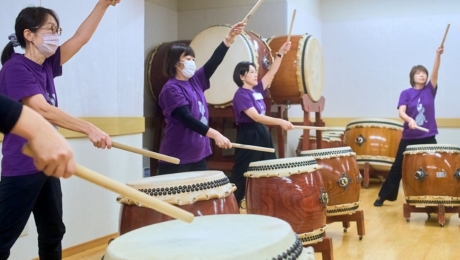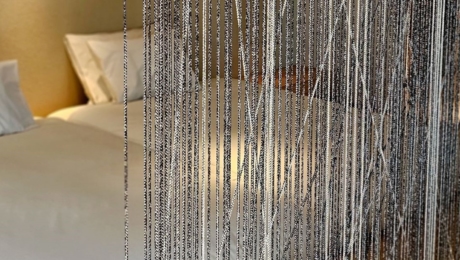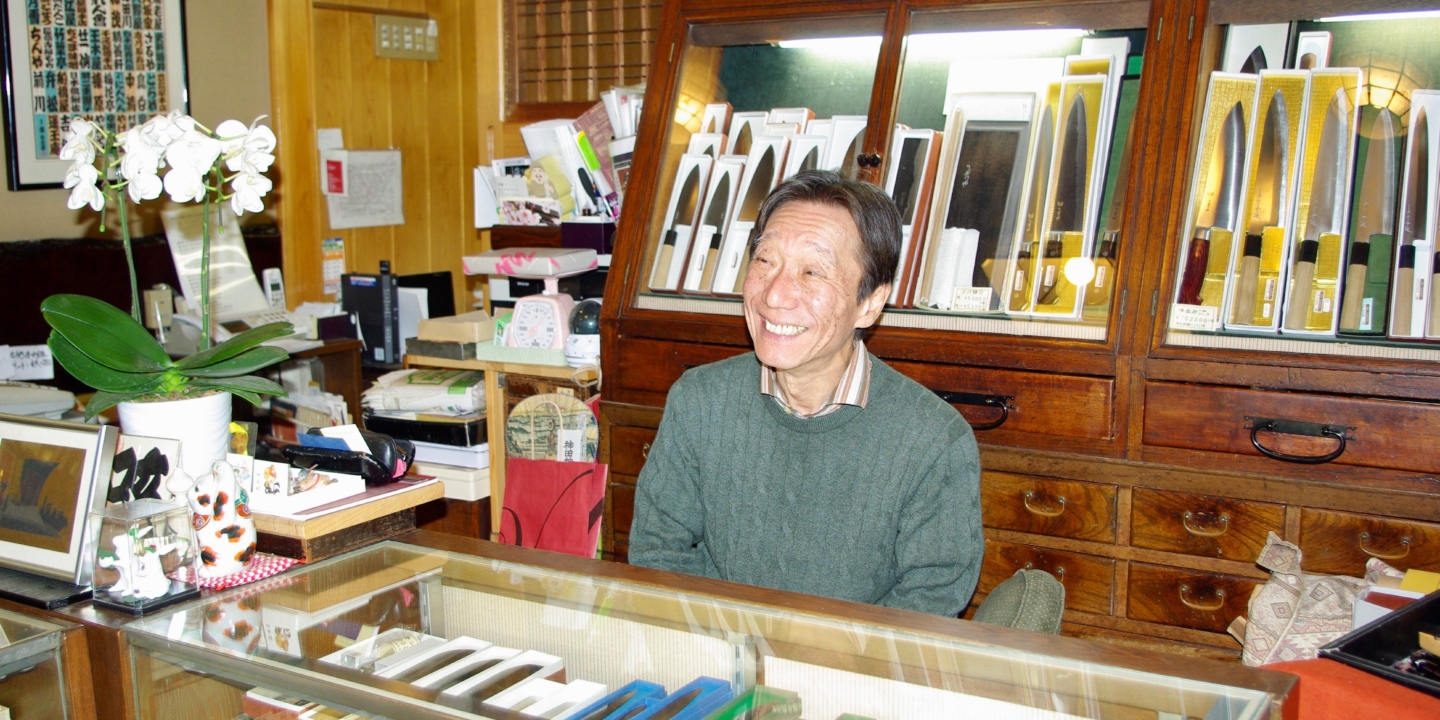
Continuing as a “craftsman-merchant” in the face of the changing times
2020.02.14
LIFEFounded in 1783, Ubukeya has manufactured and sold all manner of blades.
I asked the eighth-generation shopkeeper, Yutaka Yazaki, how people’s relationship with edged tools has changed over the years.
“It used to be that every household had scissors and shears. These days, as the tools we use every day change, such implements are disappearing. In order to make a living in this day and age by selling edged tools, one might have to sell shears for 100,000 yen, for example, which takes them beyond the price of a tool. But we deal in tools, not artistic antiques.
“For that reason, I feel that it is the role of my blade shop to introduce the value of blades—not just the price—to a wide variety of people, even overseas customers.”
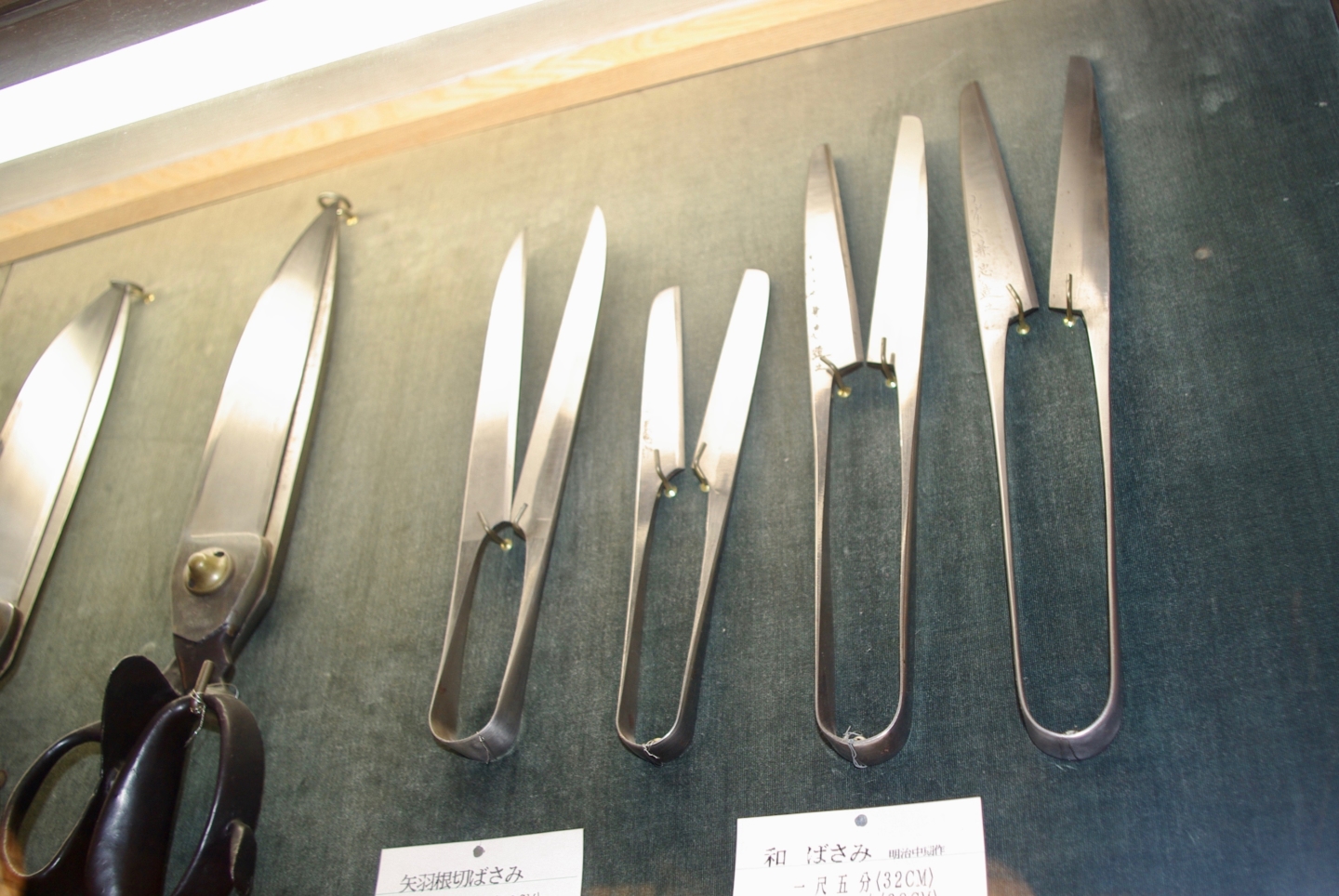
Ubukeya not only sells products they make in-store, but since the time of the second-generation shopkeeper they have conducted business as old-fashioned “craftsman-merchant”, who also repair all sorts of bladed implements. Customers of all ages and walks of life come to the shop, with many customers spanning generations: in one case a grandson asked for a sharpening of his grandmother’s cutting shears, which had been part of her trousseau.
Recently, some people visit the shop because they are attracted by the functional beauty of edged tools. When a craftsperson makes a product with their own hands and then hears directly from a customer their impressions and requests for that product, it helps them refine their work even further.
“I don’t know what tools will become obsolete and what tools will be invented, but I hope to continue as a ‘craftsman trader’ who can accommodate the tools of the period.”
